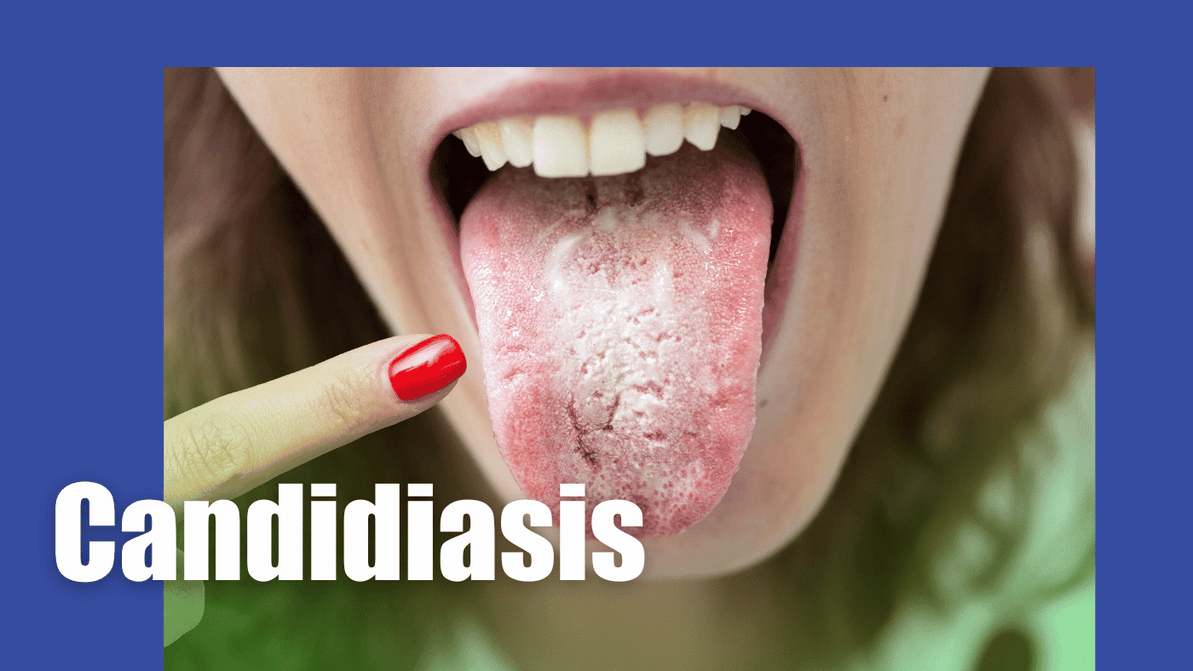What is Candida Albicans?
Candida albicans is a yeast that lives all over our body, naturally, and usually does not cause a reason for concern. However, if that yeast grows more predominantly than usual in your mouth for example you will experience “thrush” (White coating on the tongue, inflammation, pain), or it may take over in many other places in the body. The most common overgrowth is seen inside our guts… this gets tricky because it can be hard to tell if you are struggling with an overgrowth of candida albicans or as we call it “Candidiasis”.
How does Candida affect the body?
Candida is greedy and it’s goal is to live; so to do that it steals nutrients from our body. It competes with your other cells for amino acids, carbohydrates, protein, vitamins, and minerals. It even has the ability to survive when it’s starving by breaking down its own glucose stores to survive long periods of time. Candida also creates toxic byproducts such as ethanol, which converts into acetaldehyde. This gaseous compound causes your cells to have a hard time creating ATP (energy), this makes it hard for our bodies to get over constant brain fog, low mood, and fatigue.
Food intolerances can be triggered by a notable presence of candida in our intestines. We absorb our nutrients through this organ but sometimes more than just the nutrients can come through to our blood stream. This is referred to as “leaky gut” when the intestinal walls of our bowel stretch and make way for tiny holes. How is Candida causing this? This yeast is known for growing its mycelial “roots” and embedding in our intestine walls allowing proteins, bacteria, and other toxins into our bloodstream. This process leads to food intolerances because undigested food particles are seen as foreign to the body, and so the immune system labels them as threats. Later when the certain food that has crossed the barrier in your gut is being eaten, the body can begin seeing it as a threat, giving you adverse reactions and inflammation.
How do I know I have Candidiasis?
Risk factors and health history that may contribute to candida overgrowth
- History of prolonged antibiotic use
- Birth control pill
- Steroid use (asthma inhaler or topical hydrocortisone)
- Exposure to xenoestrogens (perfumes, insecticides, plastics, gasses, smoke etc.)
- Poor diet; high in sugar, low in fiber, protein, & healthy fats (Standard american diet)
- History of athlete's foot, ringworm, or other fungal infections
- History of persistent/recurring urinary tract infections, prostatitis, or vaginitis
Signs and symptoms of Candidiasis:
- Abdominal pain
- Anxiety
- Bad breath or strong body odour
- Chronic sore throat
- Constipation
- Chronic cough
- Depression
- Diarrhea
- Endometriosis or infertility
- Eczema or psoriasis
- Dry/burning eyes
- Fatigue
- Frequent colds or flu
- Frequent indigestion
- Headaches
- Hives
- Impotence
- Inability to concentrate
- Insomnia
- Itchiness
- Irritability
- Loss of balance or poor coordination
- Menstrual irregularity or PMS
- Mood swings
- Mucousy stools
- Muscle aches or weakness
- Nasal/sinus congestion or post nasal drip
- Poor memory or confusion
- Recurrent ear infections
- Shakey or irritable when hungry
- Joint pain/inflammation
- White coating on tongue
How to overcome Candidiasis:
Finding out you may have an issue with candida is the first step in making a change. We want you to feel like your best self but it does take some effort. To effectively address candida overgrowth we use a holistic approach to combat it at the root cause.
Remove; all the foods that irritate your digestive system or contribute to your gut issues
Replace; these foods with nutrient dense foods and natural remedies to assist the process,
Repopulate; your gut with probiotics and prebiotics,
Repair; your damaged intestinal walls and heal with nutritional supplements,
Rebalance; your lifestyle with stress management tactics and new goals to optimize your health.
Our nutritionists are here to help! Let's work together to get you feeling the best you can.
Thanks for reading our article… Here at Optimize Nutrition we strive to help our clients build a strong foundation of nutritional knowledge and guide them to increased health and performance. If you are interested in learning more information regarding health, nutrition or supplements, book an appointment with one of our practitioners today.
Recent Posts
-
Beat the Winter Blues: A Nutritionist’s Guide to Managing Seasonal Affective Disorder Naturally
As the days get shorter and temperatures drop, many people notice changes in mood, energy, sleep, an …Dec 12, 2025 -
Back to School: Sharpen Focus, Energize Learning
As the school season kicks off, it’s the perfect time to set students up for success—not just with s …Sep 02, 2025 -
Is Apple Cider Vinegar Really Good for You?
Exploring the Benefits of ACV (Featuring Filsingers Organic Apple Cider Vinegar & Suku Vitamins Appl …Jul 18, 2025




